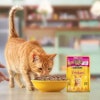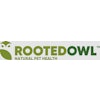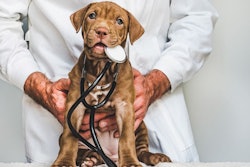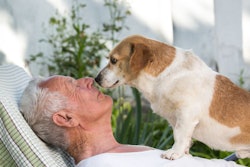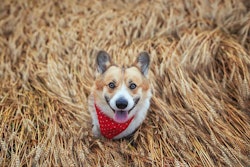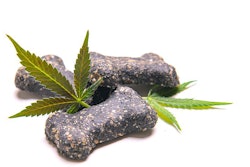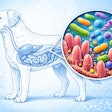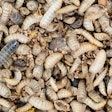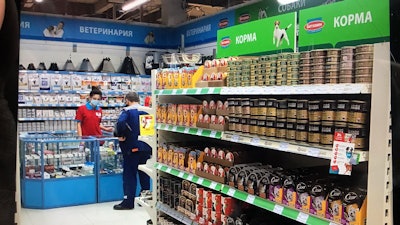
The Russian government has caused unrest in the domestic pet food market by restricting pet food imports from the U.S. and announcing plans to subject meat meal and bone meal imports to additional duties.
The restrictions on pet food imports from the U.S. have not been announced officially; however, their introduction has been confirmed by Fyodor Borisov, executive director of the Russian Pet Food Producers Association (RPFPA).
Banning of ingredients purported to include GMOs
Starting in February 2021, the Russian veterinary watchdog Rosselhoznadzor said it had banned the import of feed and feed additives from multiple U.S.-based companies after undeclared and unregistered GMO components had purportedly been found in several product samples during routine investigations. Rosselhoznadzor also called on U.S. authorities to stop allowing export to Russia of feed products with no veterinary certificates confirming the absence of GMOs.
A source in the Russian veterinary system who wished not to be named explained that as of March 2, all feed and pet food imports from the U.S. had been technically blocked.
“Feed additives were the main target of these restrictions since Russia imports a lot of them from the U.S. Pet food is collateral damage,” the source said, adding that these restrictions have nothing to do with the sanctions introduced recently by the U.S. government against a group of Russian individuals on political grounds.
While Borisov does not have information on the share of U.S. pet foods in the Russian market, it is believed to be low, only a few percentage points. In 2020, the Russian pet food market’s size totaled 231.8 billion rubles (US$3.18 billion), according to Euromonitor International. Multinational pet food manufacturers Mars and Nestlé are the largest market players, although quite a few local producers have emerged during the past few years.
Raw material supply is jeopardized
The upcoming increase in import duties on meat meal and bone meal promises to have far-reaching consequences for the Russian pet food market. The Russian government reportedly is considering plans to limit the import of these ingredients to support the domestic meat industry. Russian Deputy Prime Minister Victoria Abramchenko has instructed the Russian Agricultural Ministry to analyze the present situation with meat meal and bone meal imports.
Citing its own sources in the government, Russian newspaper Kommersant reported that Russia’ largest meat producer, Miratorg, was lobbying to limit import of the ingredients. In 2019, Miratorg launched its own pet food production factory in Kursk Oblast.
The Russian pet food industry’s demand for the meat meal and bone meal is estimated at 108,300 tons, of which 26,000 tons are imported, RPFPA estimated. Some product types with high protein content, which are used in premium pet food, are not manufactured in Russia at all, so any restrictions in this field could cause a sharp rise in prices, with a consequent drop in domestic demand and export sales, according to RPFPA estimates.
“Due to the high localization level, the share of overall raw material imports [in the Russian pet food industry] is minimal," said Borisov. “However, some raw materials in Russia are in short supply, so pet food producers have to compensate with imports, due to the low domestic production or its absence. With this background, the stability of the imported raw materials supply is a paramount issue for our industry,” he added.
